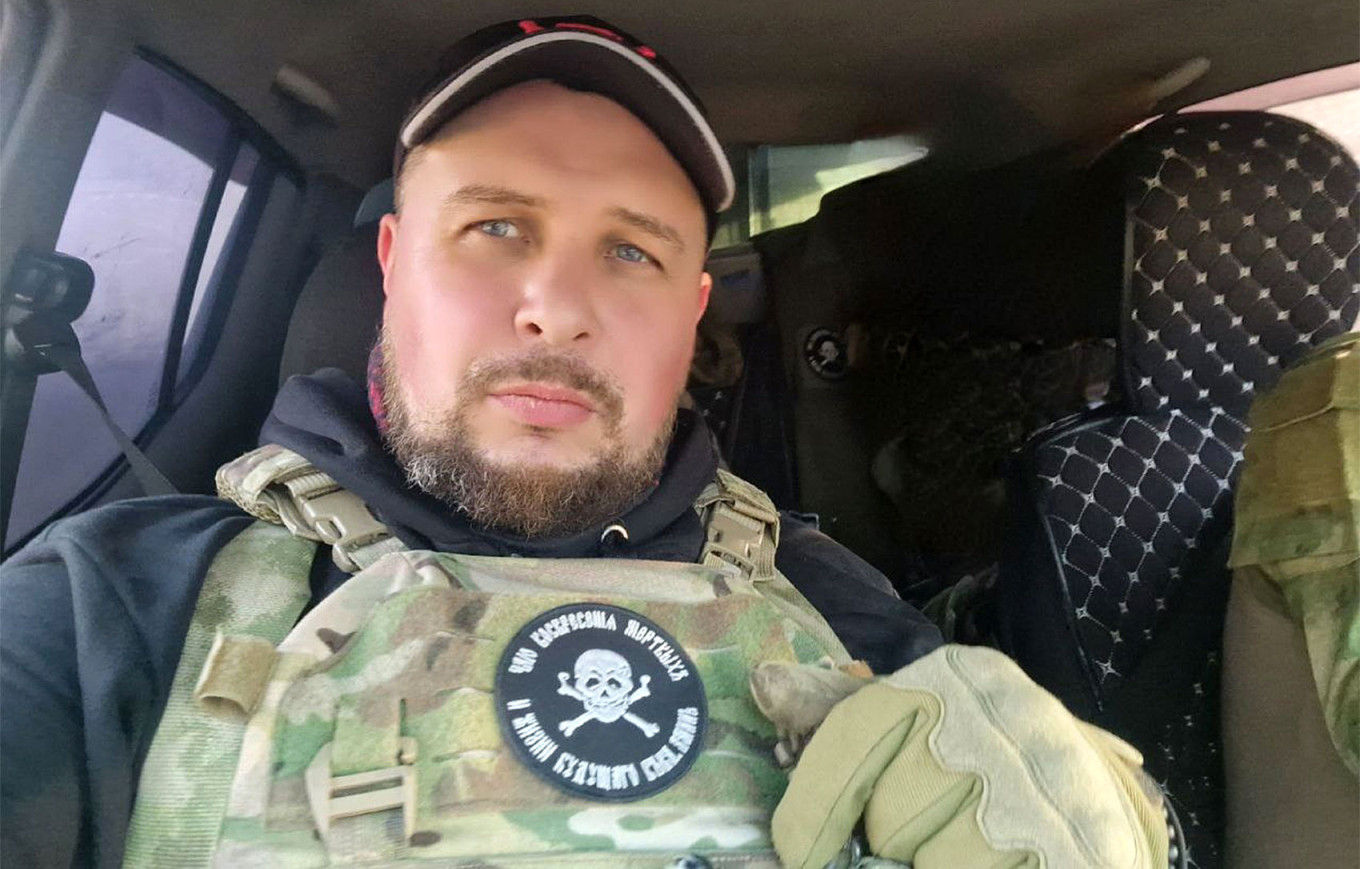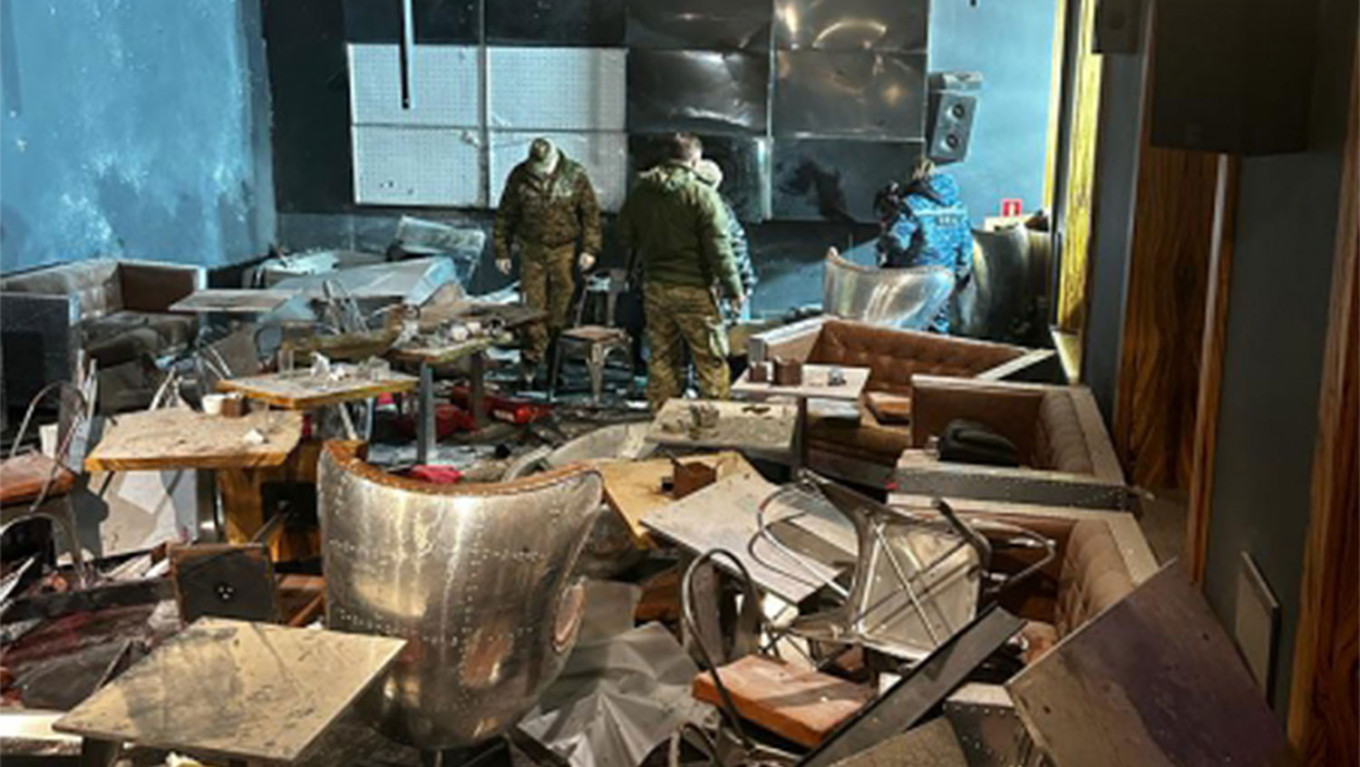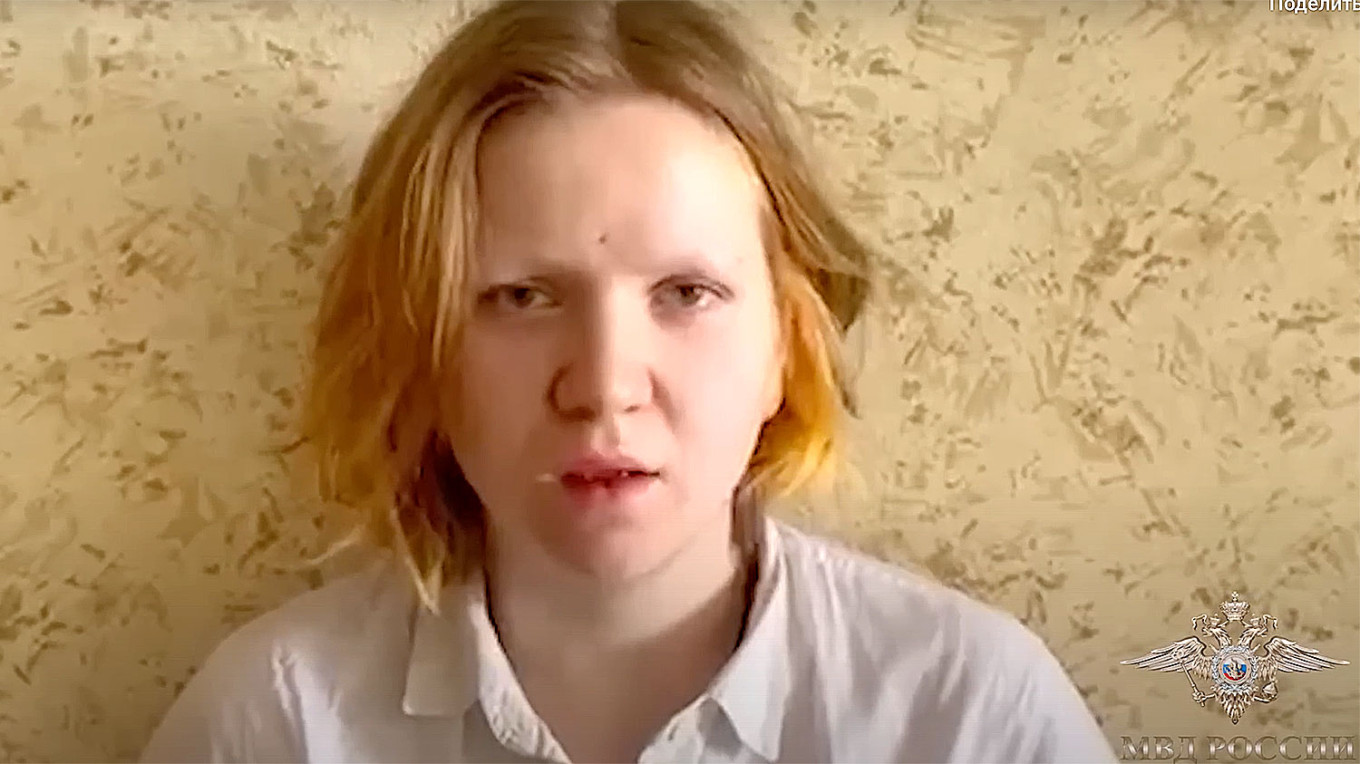The assassination of leading Russian military blogger Vladlen Tatarsky has ignited calls for revenge and intensified attacks on Ukraine from pro-war figures.
Tatarsky, a vocal Ukraine war supporter whose real name was Maxim Fomin, was killed Sunday in an explosion during an event at a cafe in Russia’s second-largest city of St. Petersburg.
Famous for his words “we’ll defeat everyone, we’ll kill everyone, we’ll rob everyone we need to,” which he said at a Kremlin ceremony in September when President Vladimir announced the annexation of four Ukrainian regions, Tatarsky had an audience of more than 500,000 people on Telegram.
“No one is going to be afraid,” pro-war blogger Ivan Kondakov told The Moscow Times when asked how war correspondents would react to the incident.
“It’s a challenge from Ukraine and the West,” Kondakov, who runs the Arbalet Z Govorit Telegram channel with 48,000 subscribers, said.
After months of grinding warfare in eastern Ukraine with little movement by either side, Tatarsky’s killing could be used as an excuse for Russia to escalate its offensive — and to crack down harder on the anti-war movement at home, analysts say.

Other leading pro-war personalities called for even more harsh actions against Ukraine, which Moscow first invaded in February 2022.
“The earth must burn under the feet of any functionary in Kyiv, whether he is in uniform or without,” war correspondent Alexander Kots wrote Monday on Telegram.
“So, what? Shall we forget? Shall we forgive?” RT chief editor Margarita Simonyan said in a tweet on Monday.
“With this act of terrorism, Ukrainian terrorists have taken the war deep into the rear of our motherland,” war correspondent Andrei Rudenko wrote on Telegram.
Commenting on Tatarsky’s death, Kremlin spokesman Dmitry Peskov said that “Russia is up against the Kyiv regime,” adding that “the regime supports terrorist actions.”
Ukrainian officials have denied involvement in the explosion.
Tatarsky came from the Donetsk region in eastern Ukraine, which Russia claims to have annexed and is currently mostly controlled by Russian troops.
Before joining pro-Russian separatists in Ukraine’s Donetsk in 2014, Tatarsky, 40, was serving jail time for armed robbery.
In 2019, he moved to Moscow and started his career as a military blogger and published three books, including a biography about his escape from prison.

Russian authorities said Monday they detained a suspect — 26-year-old Daria Trepova — in connection with the attack, which according to Russia’s Anti-Terrorist Committee (NAC) was orchestrated by Ukraine’s intelligence services along with the network of jailed Kremlin critic Alexei Navalny.
Tatarsky’s killing echoes the assassination of Daria Dugina, the adult daughter of nationalist ideologue and Ukraine war supporter Alexander Dugin.
Dugina was killed in a car bomb explosion last August after she visited a patriotic event — an attack which was also blamed on Ukraine by Russian officials.
But this time, Russia’s authorities also claimed that the attack was planned with the help of agents from Navalny’s organization, which is banned in Russia as “extremist.”
Navalny’s spokeswoman rejected the accusation that his foundation was involved.
“Alexei will soon be on trial for extremism. He is facing 35 years. The Kremlin’s thought: ‘It’s great to be able to add the terrorism charge’,” Kira Yarmysh said on Twitter.
The state-run RIA Novosti news agency reported Monday Trepova had been arrested for 10 days for taking part in an anti-war protest the day after the invasion of Ukraine.
Meanwhile, Trepova and her husband have reportedly claimed that she was used as an unwitting actor and didn’t know that the figurine contained explosives, but did not offer more details, according to the SHOT Telegram channel and SVTV media outlet.

By pointing the finger at Navalny’s supporters, the authorities appear to be attempting to use the incident as justification for intensifying a crackdown on Russia’s opposition, according to political analyst Ivan Preobrazhensky.
“The Kremlin always has a certain number of repressive ideas in reserve,” Preobrazhensky told The Moscow Times.
Linking Navalny to such attacks will likely lead to further political destabilization in Russia, predicted political expert Tatiana Stanovaya.
“Now all participants in anti-war protests will automatically become potential terrorists in the eyes of not only the security forces but also the ‘patriotic’ public,” Stanovaya wrote on Telegram, adding the government will “seek to make such incidents routine.”
AFP contributed reporting.